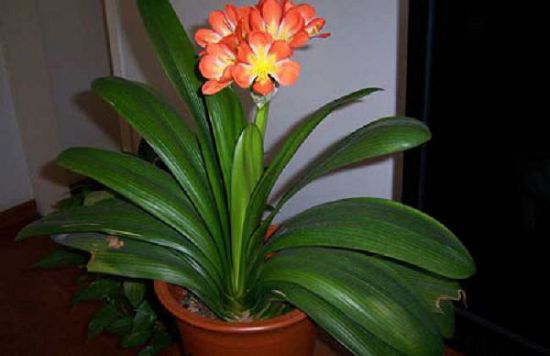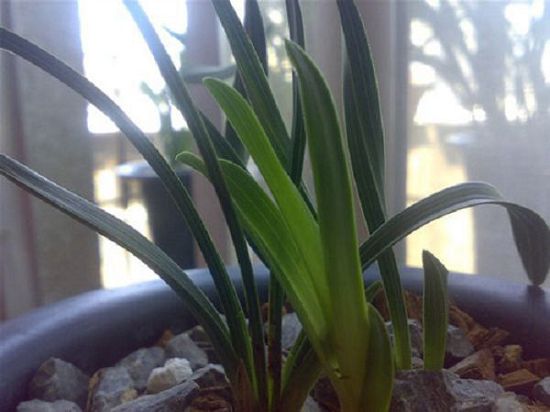Cultivation methods and key points of maintenance and Management of potted Magnolia

The growth habit of Cymbidium
Magnolia is native to the subtropical mountain forests of southern Africa, growing under trees, not only afraid of heat but not cold-resistant, like semi-shady and humid environment, afraid of strong direct sunlight, the best temperature for growth is between 18 and 28 ℃, and the growth is inhibited below 10 ℃ and above 30 ℃. Like a ventilated environment, like deep, fertile and loose soil, suitable for growing in loose and fertile slightly acidic organic matter soil.
The Propagation method of Cymbidium
1. Sowing: before sowing, soak the seeds in lukewarm water of 30: 35 ℃ for 20: 30 minutes, then air for 1-2 hours, then sow them into the culture soil. The flowerpot after sowing was placed in an environment with a room temperature of 2025 ℃ and a humidity of about 90%, and the radicle germinated in about 1-2 weeks. There are many materials available for culture soil, but one of the more easily obtained is loose soil with sufficient humus from the surface of the forest, mixed with clean fine sandy soil from 1 to 3.
2. Ramets: when ramets, first bring the mother plant from the basin, remove the persistent soil, find out the inner buds that can be divided, break off the offspring, and never break them by force, so as not to damage the young ones. After cutting off the offspring, you should immediately smear the wound with dried charcoal powder to absorb the fluid and prevent decay. Then the seed plant is planted in the pot. it usually takes 1-2 months to grow new roots and blossom for 1-2 years.
How to raise potted magnolia?
1. Soil: the native land of Magnolia is under the trees of the high-altitude forests in southern Africa, and its roots are rooted in the decaying leaf layer accumulated for many years. The gentleman orchid should use loose and fertile neutral or weakly acidic humus soil. The cultivation soil can be mixed with 65% humus soil, 20% net sand and 15% fine furnace ash, and the relative humidity should be about 40%.
2. Fertilization: the orchid should apply solid fertilizer once in winter, less nitrogen fertilizer, more phosphorus fertilizer and potash fertilizer. Eggshell powder and retting fish water is a good phosphate fertilizer, bran ash and soot are easily available potash. Nitrogen, phosphorus and potassium compound fertilizer can also be applied to promote the germination of more new plants and leaves. Fertilization must be appropriate, do not apply thick fertilizer and unfermented raw fertilizer, otherwise it is easy to cause leaf tip scorch or rot.
3. Watering: the orchid should be too dry or too wet. Every time it is watered, it must be watered thoroughly, and some more should be watered after budding. Every 20 days or so, combine watering with fermented bean cake water, fresh fish water and horseshoe water to combine watering and fertilization. Watering should be controlled when the room temperature is low to prevent the basin soil from being too wet, which will cause the rotten roots of the plant to die, but it can not make the basin soil too dry.
4, temperature: the most suitable growth temperature of Cymbidium is 15-25 ℃, 10 ℃ stops growing, 0 ℃ suffers frost injury, so it must be kept warm and antifreeze in winter, after the flower stem is extracted, it is appropriate to maintain about 18 ℃, the temperature is too high, the leaf and flower moss are only long and thin, the flower quality is poor, the florescence is short, and the temperature is too low, the flower stem is short, easy to cause premature delivery, affect the quality, and thus reduce the ornamental value.
5. Illumination: Cymbidium is a medium-light plant, the scattered light is the best in the growth process, and there is no need for strong light in the growth process, especially in summer. Proper shading is beneficial to the growth of leaves. Strong light in winter florescence will shorten the flowering period. Medium light can prolong the flowering period. If you need to blossom early in winter, you can use short-day treatment.
The four Seasons Management of Magnolia
1. Spring: after hibernation in early spring, the root system begins to recover. Due to the lack of nutrient supply,-after the wind and the sun, the leaves will be dehydrated, resulting in a decrease in brightness, hardness, thickness, and even yellow leaves, rotten leaves and so on. Therefore, the pot plant can be kept generally moist, watering too much, easy to cause rotten roots. Avoid spraying water before arrows blossom. Apply fully mature liquid fertilizer once a week or half a month, but on the principle of frequent application of thin fertilizer, do not apply thick fertilizer or raw fertilizer to avoid leaf scorching and rotting roots.
2. Summer: the gentleman's orchid is not strict with light, likes semi-shade and is afraid of direct light. Due to the high air temperature and soil temperature in dry summer, it is easy to cause root disorder, resulting in the imbalance of nutrition absorption and the occurrence of neck pulling, leaf channeling and other phenomena. In addition, due to strong sunlight, greatly increase transpiration, if not properly watered, the leaf color will appear old scorched yellow, or even wilting.
3. Autumn: the climate gradually turns cool after the beginning of autumn. in the days of continuous autumn rain, adult magnolia has more opportunities to cut seeds and blossom on the arrow. at this time, if it is drenched or watered too much, it will lead to rotten roots, rotten arrows, rotten hearts and so on. Therefore, in the arrow flowering, avoid spraying water, can be every half a month or so, irrigate a mature cake fat water (1:3). When watering, it is necessary to prevent the water from soaking into the center of the foliage, and Rain Water should not be allowed to drench into the foliage to avoid rotten stamens. In serious cases, it may even cause the whole plant to rot to death.
4. Winter: when the orchid is at a low temperature below 5 ℃ in winter, the basin soil must be kept at a humidity of about 70%, so that it will not be frostbitten by dryness, and if the moisture is less than 20%, it is easy to freeze to death. Before Frosts Descent, the room plant should be placed indoors in a sunny place, pay attention to anti-freezing and keep warm, the pot plant can be rotated 180 degrees in half a month or so. It is safe to survive the winter when the indoor temperature is kept at 6-7 ℃ in winter. When the magnolia enters the dormancy period, the water evaporation will be relatively reduced, and the basin soil should be dry as long as it remains moist.
Related
- Is the orchid suitable for indoor use? Is it good for the body?
- How to prevent the empty root of orchids?
- What to do after the crab claw orchid is withered?
- Why are the leaves of orchids always yellow? Fertilizing and watering.
- Can the root of the gentleman orchid be saved if it is rotten?
- Diagnosis and treatment of cotton-blowing beetle insects in Cymbidium
- There is a way for a gentleman's orchid to rot.
- What is the most suitable temperature and humidity for the orchid?
- How to raise a gentleman's orchid? Cultivation techniques of Cymbidium
- How to prepare the nutritive soil for the cultivation of Cymbidium



